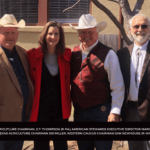The Effect of Political Correctness on Politics
The rationale of political correctness (PC) is to prevent supposed minorities from being offended (the manners) — to compel people (the tyranny) to avoid using words or behavior that may upset homosexuals, women, non-whites, the crippled, the stupid, the fat, the ugly, or any other minority group identified by those who define PC. Its primary method is the redefinition or replacement of words and behavior in order to avoid offense, to be sensitive to the feelings of minorities.
Before we can examine PC and its effect on politics, we must first understand PC’s origin and purpose.
The concept of PC was developed at the Institute for Social Research, in Frankfurt, Germany, in the early 1920s. The institute considered why communism in Russia was not spreading westward. The conclusion was that Western civilization, with its belief that the individual could develop valid ideas, was the problem. At the root of communism was the theory that all valid ideas came from the state, that the individual is nothing. The institute believed that the only way for communism to advance and spread was to help Western civilization destroy itself, or else force it to.
The institute said that by undercutting Western civilization’s foundations by weakening the rights of individuals through the change of speech and thought patterns, by spreading the idea that vocalizing beliefs was disrespectful to others and had to be avoided to make up for past inequities and injustice, Western civilization could be destroyed. The institute wanted to call its method something that sounded positive — thus “political correctness.”
Another communist, Chairman Mao Zedong, in China in the 1930s, wrote an article on the “correct” handling of contradictions among the Chinese people, thus giving us the PC concept of “sensitivity training.”
Today we can add socialism to communism. Does the addition of that economic philosophy alter the original intent of PC in any way?
Here are two specific examples of PC and of not being sensitive.
First, a famous PC incident occurred in Washington, D.C. in 1999. David Howard, a white aide to Anthony A. Williams, the black mayor of Washington, D.C., correctly used the word “niggardly” in reference to a particularly small budget item. This reference upset one of his black colleagues, who interpreted it as a racial slur and lodged a complaint. The use of the word “niggardly” was not PC due to its phonetic similarity to the racial slur “nigger,” despite the fact that the two words are etymologically unrelated. Howard was not “sensitive” or PC. He actually resigned his job, but was reinstated after a national outcry over the conflation of unrelated terms.
The cited incident (and others like it) raise the question, “Are we now to abandon the use of certain useful words in the English language in the name of sensitivity and PC?”
We can now examine how PC specifically affects politics.
PC particularly serves mediocre politicians and the bureaucrats they appoint. It is used to hold on to jobs, silencing critics and threatening anyone who questions their abilities. If the offended party can strike back with accusation of racism, discrimination, prejudice, and hatred, then PC has done its job. PC is a way of covering up incompetence and corruption. It has worked well in the U.S. for decades: attack the accuser. Benjamin Jealous, president of the NAACP, wrote, “Let me tell you something about political correctness: when politicians start overdoing it with PC, rest assured they’re either hopeless at what they do or have screwed everything up big time.”
The current uproar about the Health and Human Services (HHS) edict on birth control is a good example of the PC problem. The HHS edict said it wanted to expand “health care preventive services.” But that PC phrase included some services that were contrary to the First-Amendment guarantee of freedom of religion. PC tends to eliminate any possibility of the discussion of the rightness and wrongness of a particular action through the restraint of free speech.
As a final example of PC run amok, consider this: Why have “swamps” been replaced by “wetlands”? Why have “rainforests” replaced “jungles”? Are they not the same things? A government that wants to spend taxpayer money on conservation needs to avoid the negative connotations involving parasites and disease, so it redefines/replaces words in order to be more PC. The preservation of wetlands is a much more noble cause than preserving a mosquito-infested swamp.
The continuing necessity for PC and sensitivity indicates that the ideal of societal equality (as defined by the PC-definers) has not yet been realized.
Where, ultimately, can PC take us? One forecast was published in 1949 by George Orwell. In his book 1984, Orwell, characterizing “newspeak,” wrote, “The destruction of words is a beautiful thing.” Big Brother, the personification of the power of the state, through newspeak “simplified” words (gave them definitions he determined) to better control society. With the simplification of words, the younger generations knew only Big Brother’s version of reality. Is PC today’s newspeak?
Dr. Beatty earned a Ph.D. in quantitative management and statistics from Florida State University. He was a (very conservative) professor of quantitative management specializing in using statistics to assist/support decision-making. He has been a consultant to many small businesses and is now retired. Dr. Beatty is a veteran who served in the U.S. Army for 22 years. He blogs at rwno.limewebs.com.
Read more: http://www.americanthinker.com/2012/02/the_effect_of_political_correctness_on_politics.html#ixzz2IoYPHH8c
Follow us: @AmericanThinker on Twitter | AmericanThinker on Facebook



